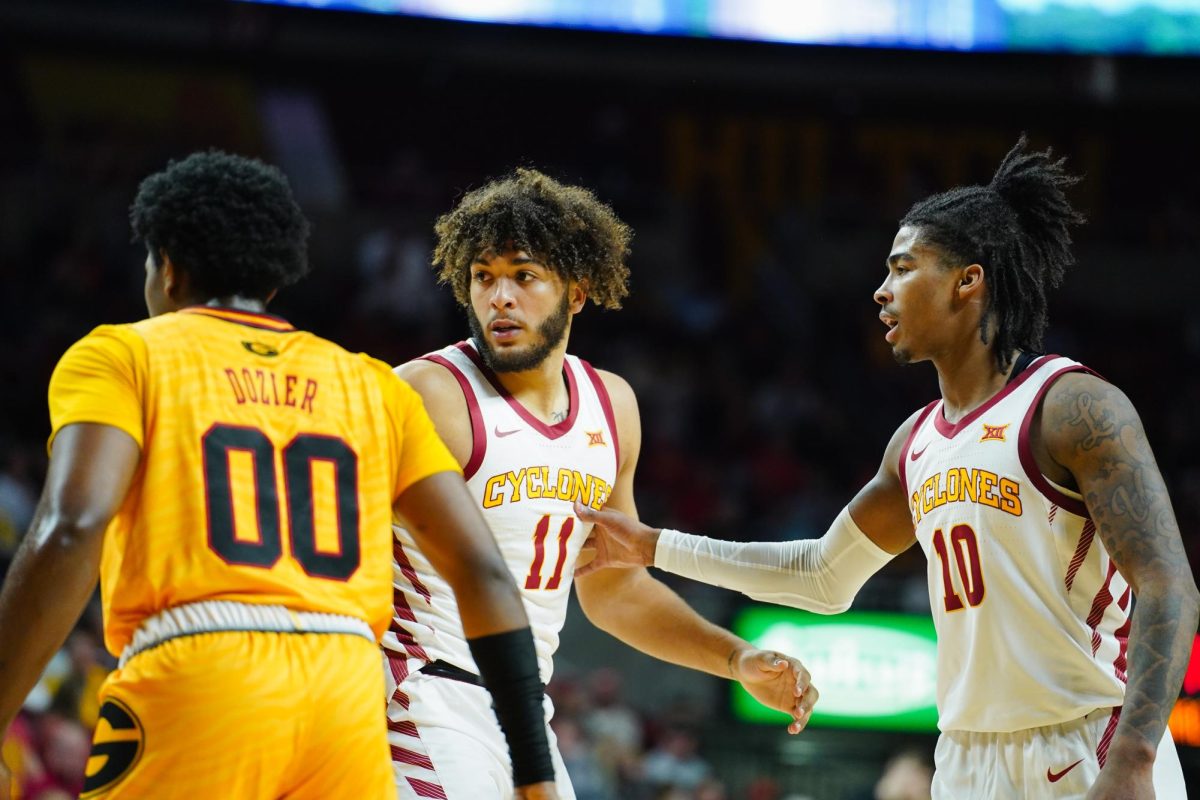Specialty seat referendum approved
February 28, 2001
After six hours of deliberation extending into the early morning hours Tuesday, the Government of the Student Body Election Commission approved a referendum which would eliminate GSB specialty senate seats.During the March 6 and 7 GSB general elections, ISU students will have the opportunity to vote on whether to remove the four special senate seats, which include American ethnic minority, disability, international and nontraditional seats.Rick Cordaro, senior in electrical engineering, wrote and circulated a petition to put several constitutional amendments on the general-election ballot. The election commission approved 2,013 signatures on the petition, which surpassed the 2,000 minimum required to add the referendum to the ballot.After the commission went into session at 9 p.m. Monday night, about 10 ISU students presented arguments against the referendum, particularly concerning the nature of the petition.”They came in on behalf of a lot of other students, and they said the petition they signed was unfair, for the most part, and misleading,” said GSB President Ben Golding.The major area of concern among students was the lack of information about the specialty seat issue, said Jennifer Ray, American ethnic minority senator. According to the petition, the constitutional amendment — if passed by a majority of students — would strike a clause regarding specialty seats in the first section of Article II, Section B.The next line of the petition reads “Strike Subsections 2-4″ of Article II, Section B, which Golding said would effectively eliminate the four specialty seats. However, the subsections are not explained further in the petition.Several students felt they were not given enough information when they were presented with the petition, Ray said. If they did not have copies of the GSB Constitution, she said, they had no way of knowing they were signing away some students’ rights to representation.”The petition wasn’t clear, and students didn’t know what they were signing when they signed it,” Ray said. “One student was told that if he didn’t sign it, he wouldn’t be allowed to vote.”That student, Mike Westendorf, said the people circulating the petition were not equipped to answer questions about the amendments.”I thought it was really misleading,” said Westendorf, freshman in computer engineering. “They said if I didn’t sign it, then I can’t vote. I thought we were being registered, or something. I don’t even think the people taking it around knew what it was, because they wouldn’t really explain what it was.”However, Cordaro said he did not intend to mislead students or omit information.”We wanted to do everything by the rules and also make a petition that is efficient,” he said. “When students asked me what this petition was, I said we are trying to eliminate specialty seats on the senate. I didn’t think there was any question or confusion about that.”Greg Tew, who spoke in defense of Cordaro’s petition, said it is “completely legal.””Personally, I think [students] should have asked before they signed if they wanted more clarification,” said Tew, vice speaker of the senate. “Several people did ask for specifics, and they were told, and then they decided whether or not to sign the petition when they were informed.”Ray said she is organizing a campaign to educate students about the implications of the referendum.”We lose all voting rights, the ability to write and debate legislation,” she said. “Unless we can vote on legislation, we are pretty much powerless. Something has to be done.”









